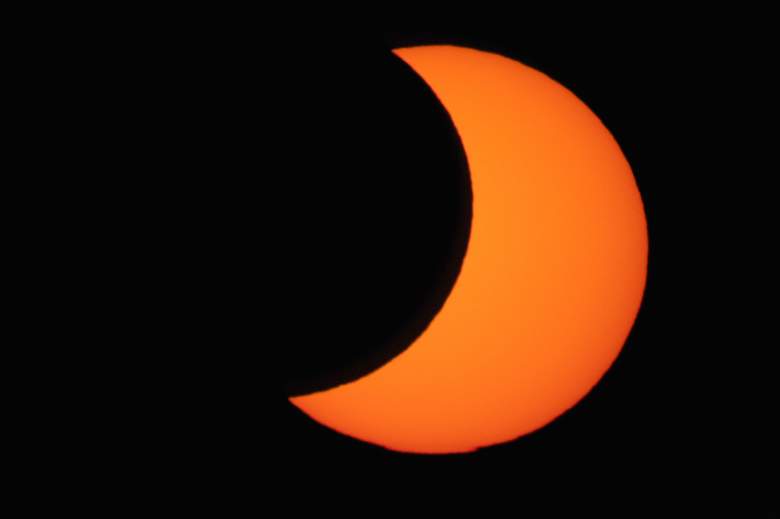
Excitement is building as the solar eclipse moves its way across the United States.
The total solar eclipse, the first one to occur in the U.S. since 1918, started in Oregon and will slowly work its way toward South Carolina during Monday afternoon.
“On Monday, August 21, 2017, all of North America will have a solar eclipse. The Moon will cover at least part of the Sun for 2 to 3 hours,” the American Astronomical Society explains. “Halfway through, anyone within a narrow path from Oregon to South Carolina will experience a brief total eclipse. The Moon will completely block the Sun’s bright face for up to 2 minutes 40 seconds. Day will turn into night, and (weather permitting) one of nature’s most awesome sights will become visible: the Sun’s diaphanous outer atmosphere, or corona.”
Luckily for those in North Carolina, the eclipse’s path of totality will make for some great views of the astronomical event, provided you have the proper eye wear.
According to The Charlotte Observer, the eclipse will reach its totality in western North and South Carolina beginning at 2:30 p.m. Eastern.
There’s good news for those who live in Charlotte, too. While the “total eclipse” won’t be felt, a “partial eclipse” will be visible for almost three hours beginning at 1:12 p.m. It comes to its peak at 2:41 p.m.
According to TimeAndDate, Charlotte will experience the partial eclipse and not the total, and it’ll reach its peak at about 2:41 p.m. Eastern.
Most other places around the state will be seeing a partial eclipse in which 90 percent of the Sun will be covered by the Moon, and the various mountain ranges in the state could make for some amazing views.
To experience the total eclipse, Andrews is one of the best places in the state to do so. The city is directly on the centerline of the eclipse’s path of totality.
In order to get a solid view of it, however, the weather needs to cooperate. And it seems to be doing so, with mostly clear skies and high temperatures near 100 degrees. Although, “there’s a chance a cloud will pass at just the moment you expect to see the eclipse,” The Charlotte Observer wrote.
If you’ve decided to check out the eclipse, be sure to wear proper glasses. Click below to see some of the best options for doing so.